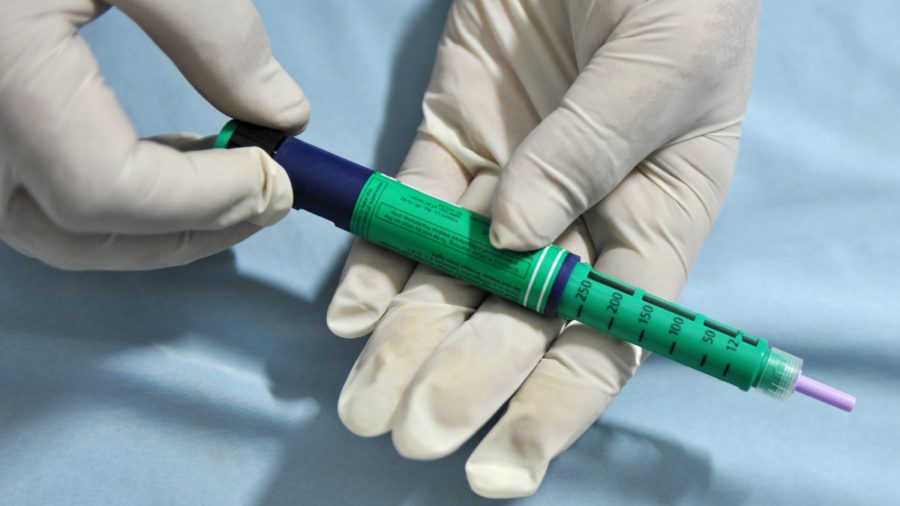Senators on Wednesday unveiled bipartisan legislation that would lower the costs of insulin amid skyrocketing prices for the diabetes medication.
Of the 37 million people in the United States who have diabetes, about 8.4 million use insulin, according to the American Diabetes Association. Medical costs in the United States for people with diabetes are more than double those incurred by people without diabetes, and about one out of every three Medicare dollars goes to treating people with diabetes.
Sens. Susan Collins (R-Maine) and Jeanne Shaheen (D-N.H.), who are co-chairs of the U.S. Senate Diabetes Caucus, said the bill would limit out-of-pocket costs for patients.
The measure ensures that commercial and Medicare insurance health plans must “waive any deductible and limit cost-sharing to no more than $35 per month or 25 percent of list price, for at least one insulin of each type and dosage form,” the pair announced in a release.
The senators said their legislation would also “extend direly needed patient protections to Americans living with diabetes by encouraging manufacturers to reduce their list prices of insulin.”
Provisions in the bill to encourage drug manufacturers to lower the overall price of insulin involve targeting rebates that the drug manufacturers pay to negotiators, known as pharmacy benefit managers, as well as to other middlemen.
Specifically, manufacturers do not have to pay any rebates to insurance plans and pharmacy benefit managers if they cap the overall price of insulin at the 2021 net prices for Medicate Part D or equivalent levels.
The insulin with capped prices would also be eligible for cost-sharing protections, including waivers of any applicable deductible and limiting copays or coinsurance to no more than $35 per month or 25 percent of the list price.
The bill would also support patient access to insulin by stipulating that a prescription drug plan (PDP) sponsor offering a prescription drug plan, or a Medicare Advantage organization offering an Medicare Advantage prescription drug (MA–PD) plan, cannot impose prior authorization, step therapy, or other medical management requirements to limit beneficiary use. Such requirements would only be allowed when clinically justified for safety reasons.
The release from Collins and Shaheen featured statements in support of the bill from the American Diabetes Association and the Juvenile Diabetes Research Foundation.
Schumer Signals Support
Senate Majority Leader Chuck Schumer said on Wednesday that he intends to put the measure to a vote on the Senate floor “very soon.”
“It ought to pass this chamber expeditiously,” Schumer said.
At least 10 of the Senate’s 50 Republicans would have to join all 50 Democrats to support the bill for it to pass a filibuster. The bill, if passed, would take effect for those with coverage on Jan. 1, 2024.
About one in five insured Americans pay more than $35 per month for the treatment, while the rest pay about $23 per month, according to a 2021 report on drug prices by health information company IQVIA.
Three companies—Sanofi SA, Eli Lilly and Co., and Novo Nordisk—have long dominated the U.S. insulin market. The trio own some 90 percent of the market for insulin, which was first isolated in the 1920s. The price of a product usually falls over time, but insulin continues to rise in cost to consumers.
The U.S. House of Representatives in March had passed a bill capping monthly out-of-pocket insulin costs for those with health insurance at $35. Unlike the Senate bill, the bill from the Democrat-majority House did not include provisions related to pharmacy benefit managers or other middlemen. It received just 12 Republican votes.
Pharmaceutical Research and Manufacturers of America spokesperson Brian Newell told Roll Call that Collins’ and Shaheen’s proposed legislation “rightly recognizes the role of insurers and middlemen in determining what people pay at the pharmacy,” but he added that more is needed to fix the “broken system.”
“We believe that lawmakers should keep working on solutions to help all patients with policies like sharing rebates and discounts directly with patients,” Newell told the outlet.
Reuters contributed to this report.
From The Epoch Times

